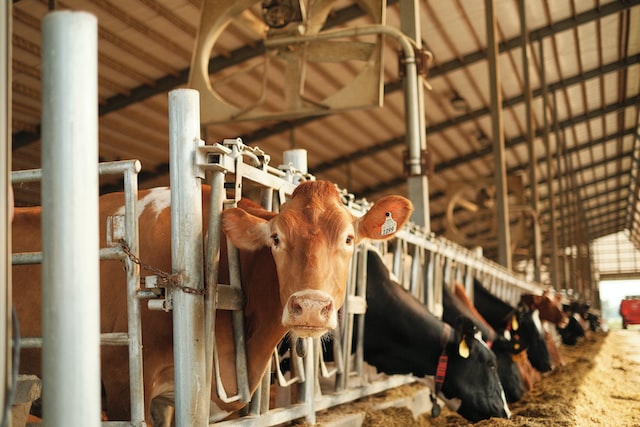Livestock mortality insurance is a type of farm insurance that helps cover livestock losses. It can be an essential part of a business plan for any farm or ranch.
If you own a herd of cattle, horses, or show, breeding, or exotic animals, it’s important to insure them against loss from natural causes such as a blizzard, tornado, lightning, or fire.
What Is It?
Livestock mortality insurance is a vital protection option for businesses that rely on animals and livestock as part of their business revenue. Whether you run a dairy farm, breed purebred cows, or feature exotic zoo animals, having this coverage can safeguard your investment and income.
Accidents happen despite your hard work and dedication to raising your livestock. Animal diseases and death from natural causes are common issues for farmers that rely on livestock to generate income.
You can cover your entire herd or select individual animals with specialized policies. You can add perils such as fire, weather events, and theft to your policy.
The cost of this type of insurance depends on the perceived risk to the insurer, as well as the age and health conditions of the animals you insure. A payout can be the difference between holding steady or financial loss based on replacement costs and decreased revenue, which can help you stay in business in the face of an unexpected calamity.
What Is Covered?
Whether you run a traditional farm with cattle, pigs, sheep, or chickens or are involved in a zoo specializing in exotic animals, livestock mortality insurance can protect your business from financial losses due to the premature death of your animal.
The coverage is customizable, so you can get blanket coverage that ensures everything on your property or individual coverage for higher-value animals. You can also choose herd coverage, which provides a specific number of animals for a fixed amount.
Livestock mortality insurance protects you from financial loss if an animal on your property dies by accident, disease, or sickness, as well as specific perils such as theft, fire, flood, earthquake, transportation mishaps, etc. The expense of replacing the animal and any income lost due to their death are also covered. This coverage can be combined with other types of business insurance to ensure you’re protected against the most common risks. Contact your local insurance station agent to learn more about this type of policy and find the right one for your operation.
How Does It Work?
Livestock mortality insurance is an extra layer of protection for businesses that rely on livestock as their primary source of revenue. When a business owner loses an animal, the policy pays out based on market value.
The amount of money paid out depends on several factors, including the age and health condition of the injured animals. It also depends on how many animals are insured and the coverage type being purchased.
A dairy farm owner, for example, might purchase animal mortality insurance to protect her animals from extreme weather events that may kill a few of her cows.
She might also add straying coverage to her livestock mortality insurance, which would pay out if an animal accidentally escaped from her property and was killed by lightning or a vehicle.
For instance, a farmer who relies on his cattle for milk and other products might also purchase gross livestock margin (LGM) insurance to help recoup losses if feed prices rise or milk prices fall. Consider purchasing livestock risk protection (LRP), a government-backed program that protects swine, cattle, and lamb farmers against declining livestock prices.
How Much Does It Cost?
Whether you own cattle, sheep, goats, pigs, or horses or have exotic animals such as llamas and camels, livestock mortality insurance is an essential protection for your operations.
If your livestock is not insured, they could die unexpectedly and cost you money in the long run.
The cost of livestock mortality coverage depends on the value of the animal you’re insuring. Typically, it’s about 12% to 15% of the value of your herd.
In addition to a basic blanket policy, farmers can select specialty policies for specific perils such as earthquakes, fire, wild animal attacks, transportation mishaps, and accidental shootings.
A policy may also provide general liability coverage for your animals, protecting you against lawsuits from the community that are filed because of operation-related hazards. For example, a livestock operation could face community lawsuits due to releasing harmful pathogens or lacking clean water or feed.
